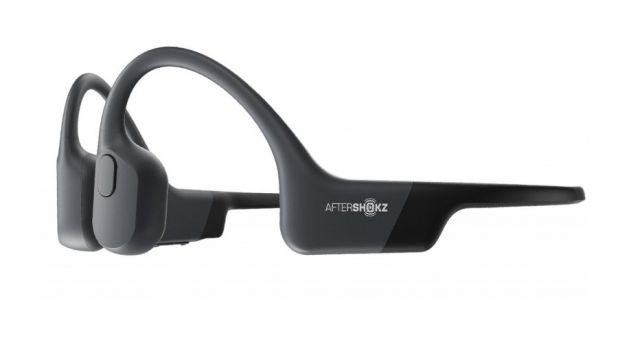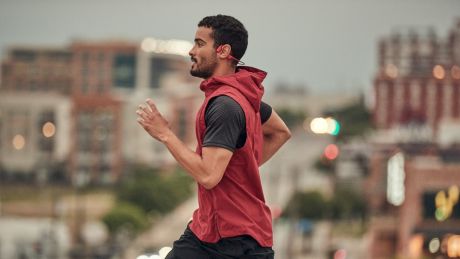You can trust Coach
Innovation is a wonderful thing, and when Shokz (or Aftershokz as they were called then) first launched its bone-conducting headphones we were as amazed as anyone that we could listen to music by placing the buds on our cheekbones, rather than putting them in our ears. It’s a huge advantage for runners and cyclists – in the city especially – where it pays to keep your ears open to help track the movement of traffic.
Once you’ve made that big leap, however, there’s a lot to be said for simply refining what you already have rather than seeking another huge advance. That’s what Shokz has done with its headphones, making small improvements with each new generation so that the latest – the Aeropex – are a little better in every way than their predecessors, the Shokz Trekz Air.
The Aeropex headphones are smaller and lighter than the Air, and have an IP67 waterproof rating compared with the IP55 rating of the Air, so you can be sure they’ll withstand your sweatiest workouts and runs in the rain. The new headphones also have better battery life – eight hours rather than the Air’s six – and improved sound quality with less leakage.
That’s a considerable raft of improvements, and just as well because the Aeropex do need to be considerably better than the Air headphones given that they cost more at £129.95.

Having worn the Air headphones regularly for the past year or so I was intrigued to see if the upgrades in the Aeropex would be immediately apparent. To be brutally honest they weren’t, but over time they did start to shine through. While extra battery life and waterproofing are both useful, it’s that size difference and the upgrade in sound quality that really make the Aeropex.
The Aeropex headphones are 13% lighter, but more noticable is the 30% smaller size which make them more comfortable and easier to wear with glasses and/or a hat while running.
Bone-conducting headphones are never going to be the choice of true audiophiles, but this upgrade should make the open-ear design more palatable to most people. Shokz says it has reduced sound leakage by 50% on the Aeropex compared with the Air, and the PremiumPitch 2+ sound is also designed to bump up the bass, which has been notoriously weak on bone-conducting buds.
Listening to the Air and the Aeropex side by side, I definitely noticed an improvement in the clarity of the sound, especially at high volumes. The amount of cheek buzz has been reduced with the Aeropex, which presumably helps the quality, even if I miss the tickle of the buzz a little bit. However, I didn’t hear any increase in the bass. When listening to particularly bassy tracks the Trekz Air still seemed to pack more of a punch on that front, even if the song as a whole sounded much clearer through the Aeropex.
See related
That said, if you are all about bass or sound quality in general, you’ll find bone-conducting headphones disappointing and probably wouldn’t go for them in the first place. The key advantage of them is to keep your ears open, so the minor improvements in sound quality Shokz has made with each new generation of its headphones are important, but not the key selling point they might be for standard in-ear buds.
If you’re a regular runner or cyclist the extra awareness you have of your surroundings when using Shokz headphones is considerable, and the brand also has a partnership with England Athletics that means they are the only type of headphones allowed in some UK Athletics races – though in our experience many runners do flout this rule without repercussions.
The Aeropex are undoubtedly the best headphones Shokz has made at the time of release, but with the also-excellent Air now available for £50 less, I’m unsure if they’re worth the extra money. The key feature is the same on both – clear ears – and while the Aeropex are better when it comes to battery life, size and fit, and sound quality, you will probably get by very happily with the Air headphones if you’re just looking for a set of bone-conducting buds.
Buy on Amazon | £129.95

Nick Harris-Fry is a journalist who has been covering health and fitness since 2015. Nick is an avid runner, covering 70-110km a week, which gives him ample opportunity to test a wide range of running shoes and running gear. He is also the chief tester for fitness trackers and running watches, treadmills and exercise bikes, and workout headphones.

